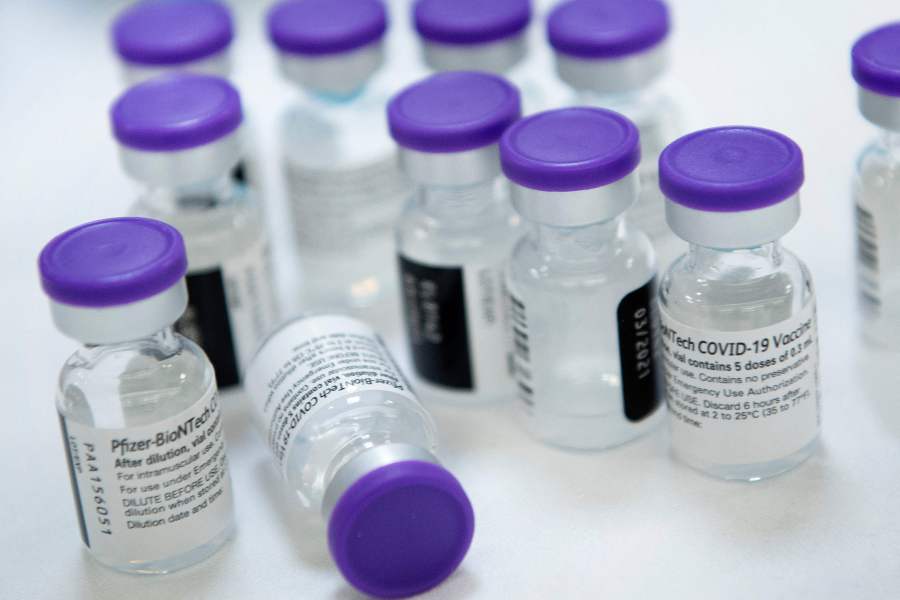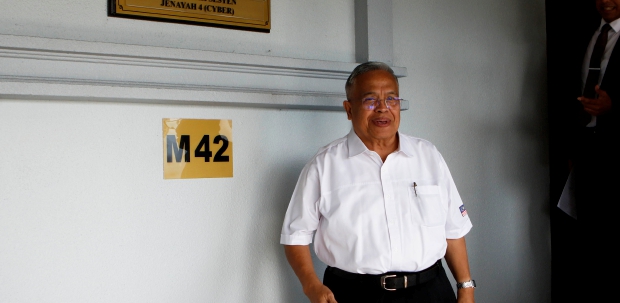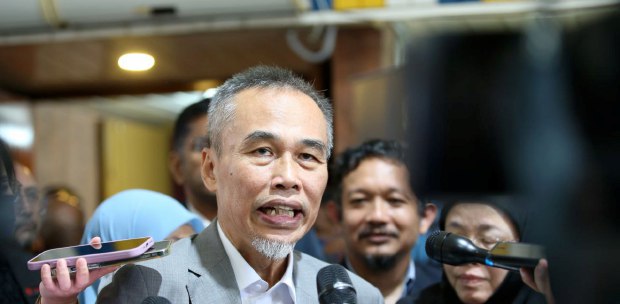THE meteoric rise of the Turkish-born German power couple, Ugur Sahin and Ozlem Tureci, developers of the Pfizer-BioNTech Covid-19 vaccine, is the stuff of legend.
German President Frank-Walter Steinmeier announced that the scientists will be honoured with one of the country's highest honours for their work.
"Ozlem Tureci and Ugur Sahin have successfully translated their medical research into practice," he stated.
"Thanks to their globally recognised competence in the field of mRNA technologies and their tireless efforts, they have succeeded in developing a vaccine against Covid-19 and receiving authorisation for its use within a short time. They have made a decisive contribution to containing the coronavirus pandemic."
The Great Cross with Star of the Order of Merit of Germany is a prominent honour for individuals rendering services to the nation.
Born in Turkey in 1965, Sahin arrived in Germany aged four. His father worked in a car factory. He studied medicine at the University of Cologne and went on to work for several years at a university medical centre.
Tureci, the daughter of a Turkish physician who emigrated to Germany from Istanbul, studied medicine at Saarland University and became a cancer immunotherapy pioneer.
In 2001, the couple founded Ganymed Pharmaceuticals and developed cancer drugs, selling the company in 2016 for US$1.4 billion. BioNTech, founded in 2008, started collaborating with Pfizer in 2018, initially on a flu vaccine and then in March last year on a coronavirus vaccine.
The US Food and Drug Administration's December endorsement of the first major Covid-19 vaccine fuelled an astronomical payback for the couple. The market value of BioNTech has soared past US$21 billion, placing them among the richest people in Germany. This recognition by the German president is surely the beginning of many other honours ahead for the couple, possibly even a well-deserved Nobel prize.
It is worth noting that their success is a direct consequence of one of the best scientific infrastructures in the world. Germany is a world leader in research and development (R&D) thanks to its strong system of support. It not only finances infrastructure and institutions, it also supports university-based cutting-edge research, existing business enterprises and start-ups, and cooperation between industry and academia.
World Bank data showed that Germany spent 3.09 per cent of its gross domestic product (GDP) on R&D in 2018, comparable with Israel (4.95 per cent), Japan (3.26 per cent), South Korea (4.81 per cent), Sweden (3.34 per cent), Switzerland (3.37 per cent) and the United States (2.84 per cent).
There is a link between national spending on R&D and prosperity.
Germany, Japan and South Korea are three countries that rose from the ashes of war to achieve astounding socio-economic development, predicated on their commitment to science, technology and innovation.
Contrast this with the developing or least developed countries in the 57-member nations of the Organisation of Islamic Cooperation. Of these, 21 are classified as Least Developed Countries with many citizens living on less than US$1.90 per day.
Except for Malaysia and Turkey, none of the other OIC countries spend more than one per cent of their GDP on R&D.
Some countries may be so destitute they can't afford to allocate any funds for R&D. But that doesn't apply to Malaysia, which committed to science, technology and innovation as a path to developed country status, yet finds itself now backsliding in this department.
How do we explain a World Bank report late last year that said "Malaysia has fallen short compared with some of its high-income aspirational peers?"
R&D expenditure in the country increased to 1.4 per cent of GDP in 2016 from below 0.7 per cent in 2006, but has since declined to slightly below one per cent up to 2018. This is disappointing, but we are well known to be good in planning but short on walking the talk.
The Eleventh Malaysia Plan (2016-2020) set a goal of spending at least two per cent of GDP on R&D, but that was not to be.
Furthermore, there was a reference in the Plan to establishing a Research Management Agency to coordinate and streamline research projects carried out by various ministries, public research institutes and universities. That also remains only a paper pledge.
Therefore, we should not be envious when we discover that all three of the Muslim Nobel laureates (Abdus Salam, Pakistan; Ahmed Zewail, Egypt; and Aziz Sancar, Turkey) all did their seminal works in the West. Sahin and Tureci are just following in their hallowed footsteps.
The writer is a senior fellow of the Academy of Sciences Malaysia and chairman of Atri Advisory






